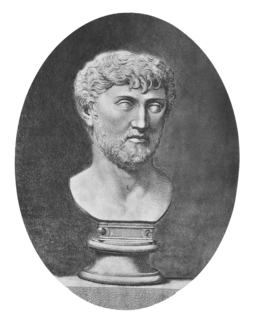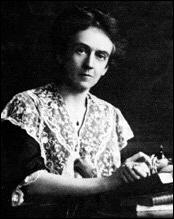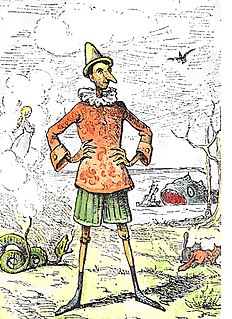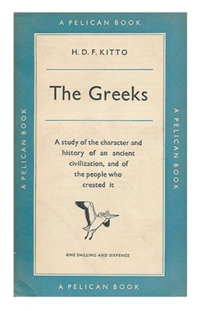
Homer is the legendary author to whom the authorship of the Iliad and the Odyssey, the two epic poems that are the foundational works of ancient Greek literature, is attributed. He is regarded as one of the greatest and most influential authors of all time. For example; in Dante Alighieri's Divine Comedy, Virgil refers to him as "Poet sovereign", king of all poets; in the preface to his translation of the Iliad, Alexander Pope acknowledges that Homer has always been considered the "greatest of poets".

Rhetoric is the art of persuasion, which along with grammar and logic is one of the three ancient arts of discourse. Rhetoric aims to study the techniques writers or speakers utilize to inform, persuade, or motivate particular audiences in specific situations. Taking place in Athens in the early fifth century, the demos created "a strategy for effectively talking to other people in juries, forums, and the senate". Aristotle defines rhetoric as "the faculty of observing in any given case the available means of persuasion" and since mastery of the art was necessary for victory in a case at law, for passage of proposals in the assembly, or for fame as a speaker in civic ceremonies, he calls it "a combination of the science of logic and of the ethical branch of politics". Rhetoric typically provides heuristics for understanding, discovering, and developing arguments for particular situations, such as Aristotle's three persuasive audience appeals: logos, pathos, and ethos. The five canons of rhetoric or phases of developing a persuasive speech were first codified in classical Rome: invention, arrangement, style, memory, and delivery.
Pre-Socratic philosophy, also known as early Greek philosophy, is ancient Greek philosophy before Socrates. Pre-Socratic philosophers were mostly interested in cosmology, the beginning and the substance of the universe, but the inquiries of these early philosophers spanned the workings of the natural world as well as human society, ethics, and religion. They sought explanations based on natural law rather than the actions of gods. Their work and writing has been almost entirely lost. Knowledge of their views comes from testimonia, i.e. later authors' discussions of the work of pre-Socratics. Philosophy found fertile ground in the ancient Greek world because of the close ties with neighboring civilizations and the rise of autonomous civil entities, poleis.

Thucydides was an Athenian historian and general. His History of the Peloponnesian War recounts the fifth-century BC war between Sparta and Athens until the year 411 BC.

Titus Lucretius Carus was a Roman poet and philosopher. His only known work is the philosophical poem De rerum natura, a didactic work about the tenets and philosophy of Epicureanism, and which usually is translated into English as On the Nature of Things. Lucretius has been credited with originating the concept of the three-age system that was formalised in 1836 by C. J. Thomsen.

Reason is the capacity of consciously applying logic by drawing conclusions from new or existing information, with the aim of seeking the truth. It is closely associated with such characteristically human activities as philosophy, science, language, mathematics, and art, and is normally considered to be a distinguishing ability possessed by humans. Reason is sometimes referred to as rationality.

Zen and the Art of Motorcycle Maintenance: An Inquiry into Values is a book by Robert M. Pirsig first published in 1974. It is a work of fictionalized autobiography, and is the first of Pirsig's texts in which he explores his "Metaphysics of Quality".

Virtue ethics are a class of normative ethical theories which treat the concept of moral virtue as central to ethics. Virtue ethics are usually contrasted with two other major approaches in normative ethics, consequentialism and deontology, which make the goodness of outcomes of an action (consequentialism) and the concept of moral duty (deontology) central. While virtue ethics does not necessarily deny the importance of goodness of states of affairs or moral duties to ethics, it emphasizes moral virtue, and sometimes other concepts, like eudaimonia, to an extent that other theories do not.

Edith Hamilton was an American educator and internationally known author who was one of the most renowned classicists of her era in the United States. A graduate of Bryn Mawr College, she also studied in Germany at the University of Leipzig and the University of Munich. Hamilton began her career as an educator and head of the Bryn Mawr School, a private college preparatory school for girls in Baltimore, Maryland; however, Hamilton is best known for her essays and best-selling books on ancient Greek and Roman civilizations.
Book of Thoth is a name given to many ancient Egyptian texts supposed to have been written by Thoth, the Egyptian god of writing and knowledge. They include many texts that were claimed to exist by ancient authors and a magical book that appears in an Egyptian work of fiction.

Arete is a concept in ancient Greek thought that, in its most basic sense, refers to "excellence" of any kind. The term may also mean "moral virtue". In its earliest appearance in Greek, this notion of excellence was ultimately bound up with the notion of the fulfillment of purpose or function: the act of living up to one's full potential. The person of Arete is of the highest effectiveness; they use all of their faculties—strength, bravery, and wit—to achieve real results. In the Homeric world, Arete involves all of the abilities and potentialities available to humans.
John Kitto was an English biblical scholar of Cornish descent.

Adrienne Mayor is a historian of ancient science and a classical folklorist.
Humphrey Davy Findley Kitto, FBA was a British classical scholar of Cornish ancestry. He was born in Stroud, Gloucestershire.
The epideictic oratory, also called ceremonial oratory, or praise-and-blame rhetoric, is one of the three branches, or "species" (eidē), of rhetoric as outlined in Aristotle's Rhetoric, to be used to praise or blame during ceremonies.
David Malcolm Lewis was an English historian who was Professor of Ancient History at the University of Oxford. He is most renowned for his monumental two-volume edition of the inscriptions of Archaic and Classical Athens and Attica. His breadth and depth of knowledge was so widely admired that for decades he was invited by other scholars to comment upon and improve a high proportion of all book manuscripts in the field of Greek history before they went to publication.

Literature broadly is any collection of written work, but it is also used more narrowly for writings specifically considered to be an art form, especially prose fiction, drama, and poetry. In recent centuries, the definition has expanded to include oral literature, much of which has been transcribed. Literature is a method of recording, preserving, and transmitting knowledge and entertainment, and can also have a social, psychological, spiritual, or political role.

Stoicism is a school of Hellenistic philosophy founded by Zeno of Citium in Athens in the early 3rd century BC. It is a philosophy of personal eudaemonic virtue ethics informed by its system of logic and its views on the natural world, asserting that the practice of virtue is both necessary and sufficient to achieve eudaimonia—flourishing by means of living an ethical life. The Stoics identified the path to eudaimonia with a life spent practicing the cardinal virtues and living in accordance with nature.
Melissa Lane is a full professor of politics at Princeton University, a position she has held since 2009. Prior to this, she was a Senior Research Fellow of King's College, Cambridge and Associate Director of their Centre for History and Economics. She was a lecturer at Cambridge from 1994 to 2009. Her expertise is in political theory.

Christiane Sourvinou-Inwood was a scholar in the field of Ancient Greek religion and a highly influential Hellenist.













